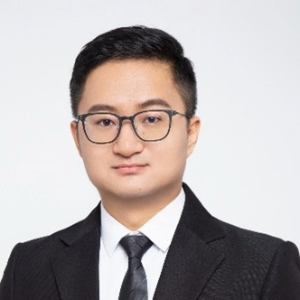Events
Mar 28, 2025
Seminar (2025-03-28)
School of Biomedical Sciences cordially invites you to join the following seminar:
Speaker: Dr Yun Chang, Assistant Professor, Department of Biomedical Engineering, The Hong Kong Polytechnic University
Talk Title: Chimeric Antigen Receptor (CAR) engineered neutrophil for glioblastoma therapy
Date: 28 March 2025 (Friday)
Time: 4:00 pm – 5:00 pm
Venue: Lecture Theatre 3, G/F, William M.W. Mong Block, 21 Sassoon Road
Host: Professor Rio Sugimura
Biography

Dr. Yun Chang, an Assistant Professor and Presidential Young Scholar in the Department of Biomedical Engineering, The Hong Kong Polytechnic University, received his bachelor’s degree from Jilin University (2013) and his Ph.D. from the Changchun Institute of Applied Chemistry (CIAC), Chinese Academy of Sciences (2019). He then conducted a Postdoctoral Research Fellow at Purdue University (2019-2024). And he joined The Hong Kong Polytechnic University in 2024. His research interests focus on gene editing and the targeted differentiation of human pluripotent stem cells, in conjunction with the application of intelligent, functionalized biomaterials for disease immunotherapy. Dr. Chang has authored more than 40 research papers published in esteemed international academic journals, including Nature Review Bioengineering, Nat. Communications, Bioactive Materials, Advanced Materials, Nano Letters, Advanced Science, Nano Today, Biomaterials, Cell Reports, ACS Applied Materials & Interfaces, and Nano Research. These publications feature his contributions both as the primary author and corresponding author. Furthermore, Prof. Chang has successfully filed six patent applications.
Abstract
Glioblastoma (GBM) is one of the most aggressive and lethal solid tumors in humans. Despite advancements in cancer therapeutics, including chimeric antigen receptor (CAR)-T cells and chemotherapeutics, their efficacy in GBM treatment remains limited due to the restrictive blood-brain-barriers. Human neutrophils naturally traverse physiological barriers and exhibit potent immune responses against pathogens. However, their short lifespan and resistance to genome editing have constrained their broader application in immunotherapy. To overcome these challenges, we genetically engineered human pluripotent stem cells (hPSCs) with synthetic CARs and differentiated them into functional neutrophils using a chemically defined platform. These CAR neutrophils demonstrated robust and specific cytotoxicity against tumor cells in both in vitro and in vivo models. Furthermore, the most potent CAR neutrophils were designed to noninvasively deliver tumor microenvironment-responsive nanodrugs, effectively targeting GBM without triggering additional inflammation at the tumor site. Additionally, we explored the synergistic anti-tumor effect of CAR neutrophils and CAR NK cells, where neutrophils modulate the tumor microenvironment, while NK cells provide targeted cytotoxicity. To enhance therapeutic application, we developed the neutrophil-specific modRNA translation (NeuSMRT) system, enabling the successful delivery of synthetic modified RNA (modRNA) encoding CAR constructs into primary neutrophils ex vivo and in vivo. This innovative approach represents a promising strategy for overcoming GBM’s therapeutic barriers and advancing immunotherapy.
ALL ARE WELCOME.

